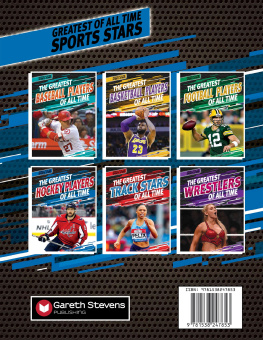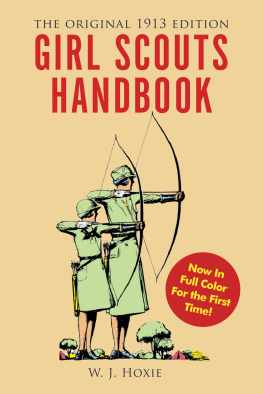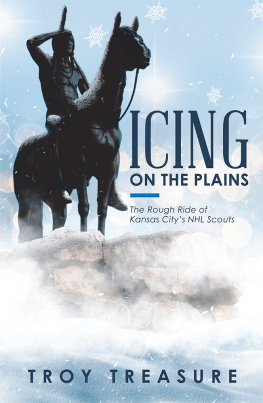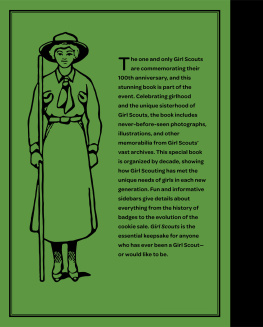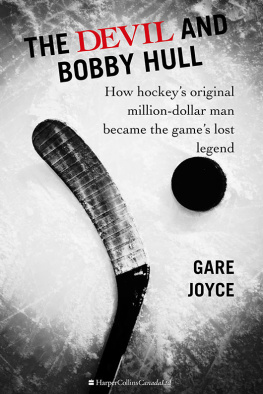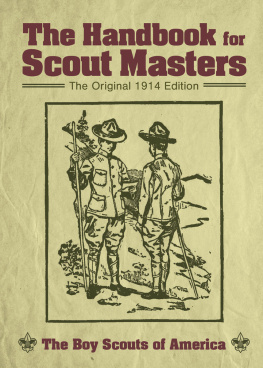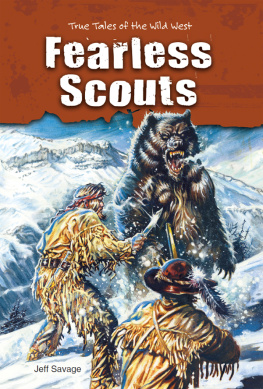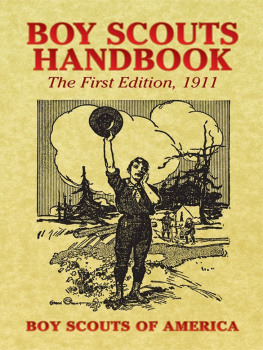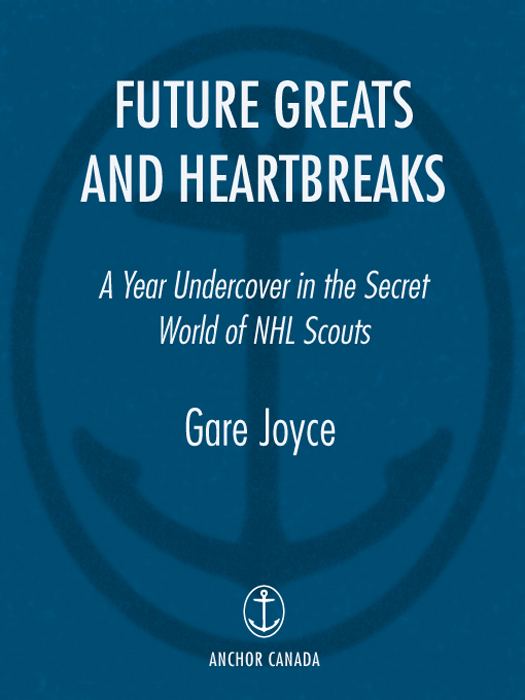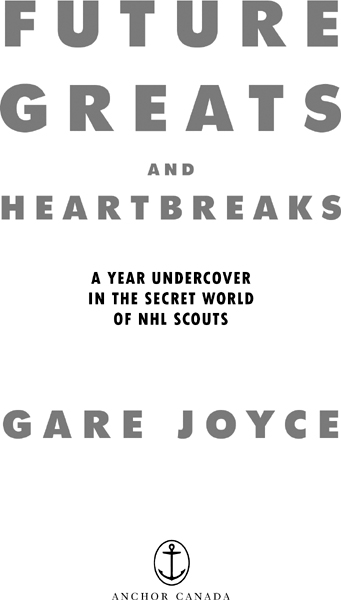Praise for Future Greats and Heartbreaks
[A] captivating look at the world of the scout and the prospect Joyce guides us through this world deftly, both educating and entertaining as he goes. The Globe and Mail
There is no doubt that Joyce is the foremost authority on the workings and people involved in major junior hockey in North America and that expertise, intertwined with unparalleled passion, comes through incredibly clearly. Joyce gives us a unique insight. Future Greats and Heartbreaks is typical Joyce work, painstakingly researched and well crafted. It brings readers inside the world of scouting and player evaluation like never before and explains the intricacy of the most inexact science in sports A must-read.
The Hockey News
Joyce writes insightfully. A lively, detailed look at a compelling part of the hockey world that few ever truly penetrate.
Ottawa Citizen
A rich lode for students of the hockey business. Joyce deftly skates through the perilous times for the franchise in his year abroad. Calgary Herald
There is a ton of interesting material. Halifax Chronicle Herald
A dandy book. Edmonton Journal
A different kind of hockey book, but in an exceptional way. It takes you into the world of junior hockey and explores the good and the bad, as well as the beautiful and ugly truths that simmer just under the ice of Canadas game. It is filled with the triumph of good will, the frustration of watching arrogant talent succeed and the heartbreak of failure in what can be a cold, heartless world.
The Gazette (Montreal)
ALSO BY GARE JOYCE
When the Lights Went Out:
How One Brawl Ended Hockeys Cold War and Changed the Game
Sidney Crosby: Taking the Game By Storm
The Only Ticket Off the Island:
Baseball in the Dominican Republic
To Susan
CONTENTS
PART ONE
PART TWO
PART THREE
PROLOGUE
August 12, 2006, Zimny Stadion, Breclav, Czech Republic
I TS THE FIRST S ATURDAY NIGHT OF THE HOCKEY SEASON, but its a long way from Hockey Night in Canada. Its six time zones away from the foot of Bay Street or rue de la Gauchetire Ouest. Its not a game between NHLers, not even pros, not even men, really. Most of the best seventeen-year-old hockey players from Canada and the United States are squaring off for gold medals and bragging rights at the Ivan Hlinka World Cup. The final of the eight-team tournament, the game isnt broadcast back to North America, and the outcome wont be headline news there. It will barely be noted in Canadian newspapers, even in the hometowns of the players here, and it wont be mentioned in U.S. sports pages at all. But make no mistake, this tournament and this game have been circled on calendars in National Hockey League front offices for months now. Flights and hotels were booked back in the spring. Its a more meaningful game than many hockey nights in Canada that will be watched by millions this winter.
The NHL isnt on the ice. The NHL is in the stands. A hundred and fifty scouts and executives with NHL teams, several more scouts with the NHLs Central Scouting Service, a dozen or so agents certified by the NHL Players Association. You wont find this many heavy hitters at NHL gameslucky if you have ten pro scouts up in the press box and a few execs from the teams that are playing.
A couple of Czech photographers are working the game. So are a couple of young reporters who work for local papers. Im the only North American sportswriter in attendanceI might be the only North American sportswriter whos really paying attention to the tournament. I have a couple of freelance assignments to knock offthe main one a profile of Angelo Esposito, the captain of the Canadian team, the top-rated prospect eligible for the 2007 NHL entry draft, a kid who has been playing in the spotlight since he turned fourteen. I also want to get a look at Nick Petrecki, a defenceman with the U.S. team whos billed by some as the best blueline prospect going into the season. The assignments will just cover the expenses, really. Its a busmans holidayeight games in five days. I was looking for a way to get here. It was circled on my calendar, just like the scouts.
As I say, the NHL is in the stands, not on the ice. The players in the starting lineups stand on their blue lines and listen to the playing of O Canada and The Star-Spangled Banner. When the final notes echo around the arena they slap their sticks on the ice and yell and whoop. And when the puck is dropped, they yell and whoop some more, overexcited teenagers acting like overexcited teenagers. Some of them on the ice and on bench will end up becoming millionaires and some will never make a buck playing the game. Some of them will get beyond youthful overexcitement and respect the game; others wont. The NHL is here in the stands, trying to sort one bunch from the other, and so am I.
I was an unlikely pick, Ill admit that. Theyd probably call it a reach. Fact is, even I thought so. The Globe and Mails hockey columnist had bolted back in the summer of 94. Id only written a few magazine articles about hockey, more about the business of the NHL than about the game itselfId written a book about baseball, and my idea of winter sport was basketball. I had been to a dozen Maple Leaf games in my life. I wouldnt have described myself as a fan. I was a lapsed fan. I went to junior games Friday nights and Sunday afternoons as a teenager. As a kid I went with my father to Bobby Orrs last junior game, Oshawa vs. Edmonton for the Memorial Cup at Maple Leaf Gardens. I saw Wayne Gretzky play as a junior when I was in university in Ottawa. But even junior hockey I gave up, along with other childhood things. For all those who applied, writing a hockey column for the national newspaper was a job they dreamed of; for me, it was one I hadnt even thought of.
One day the phone rang. On the other end was an editor from The Globe and Mail asking if I had seen the ad. I told him I had seen it. He asked me if Id come in to talk. Sure, I said, it doesnt cost anything to talk.
After an uncomfortable and thoroughly puzzling interview, I passed on a note thanking the editor for his interest, something to the effect of Sorry this didnt work out please stay in touch
And a couple of days later, the editor called me and told me I was hired.
Serendipity. A series of fortunate events. Thats how I ended up working in the game.
Some would have taken it as a bad sign that my first week on the job coincided with the NHL lockout of 1994. In effect, I was hired to cover a league that immediately shut down on my arrival. Its a game of constant motion, but come October arenas were dark and Zambonis parked. Theres only so much reporting on collective bargaining that a hockey scribe can write and still sustain the interest of readers. So I cast around looking for other stories. I started to look at the games far from the spotlight, games not tracked by the national media. In some circles it would be called colour, in others filler. To me it was neither. Fact is, there was a lot of despair about the state of hockey: that the game was in crisis, that fans would be alienated, that young people were tuning out the game. Above all there was the idea that the supposed caretakers of the gamethe commissioner heading the league and the boss of the players associationcared only about business. Thats how I ended up in junior hockey rinks, looking for signs of hockey life.


